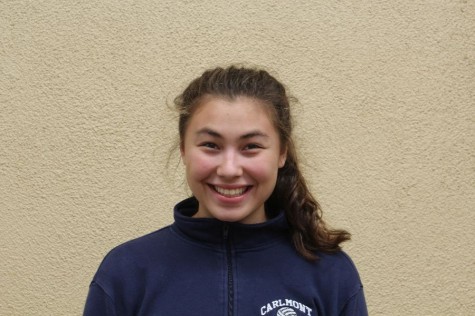Although California’s recent rainfall has provided comfort to locals due to the four year drought, the state faces another pressing environmental issue.
This week, Northern California has been under a burn ban by the Bay Area Air Quality Management District (BAAQMD).
Burn bans are a part of the Winter Spare the Air movement, mandating when households can burn wood, manufactured fire logs, or any other solid fuel both inside and outside the home for 24 hours.
During the winter, wood-burning is the major factor contributing to the Peninsula’s air pollution.
Wood smoke similar to cigarette smoke also contains microscopic particles that are dangerous to the human body if inhaled in large amounts.
Junior Melody Shanahan said, “Many people view a fire in the fireplace as a winter necessity and are oblivious to the damage it is causing. ”
Due to the high pressure weather system currently in place over the region, the Peninsula has experienced poor air quality with calm and cool weather.
The high pressure in the air prevents wind from moving into the region, which removes all the toxins in the air from the burnings of logs. Low winds prevent toxins from escaping the area, therefore the chemicals released from the wood remains in the air. As a result, smoke build up occurs.
Breathing becomes harder for those with breathing conditions such as asthma and is harmful to the population of all ages.
“Burn bans are essential to those with respiratory conditions because they help regulate the air quality and notify the general population on the issue. Those without breathing conditions typically do not pay attention to such a topic because it does not affect them,” said Senior Natalie Tussy.
During Winter Spare the Air Alerts, or burn bans, it is illegal to use wood-burning devices including fireplaces, fire pit, and pellet stoves. Homes with only wood heating sources are exempt.
Since Monday and throughout the week, San Mateo County residents have been prohibited from burning wood and BAAQMD has issued its 14th ban of the season for Jan. 9.
Senior Leah Roe said, “Having five Spare the Air days consecutively demonstrates the severity of air quality and the hardship the Bay Area faces managing it.”
Before burning, locals are required to check the Winter Spare the Air Alerts effective from Nov. 1 to Feb. 28. Burning on Spare the Air days are illegal and can result in hefty fines and damage to the respiratory system.
To stay informed regarding the burning status, click here.


